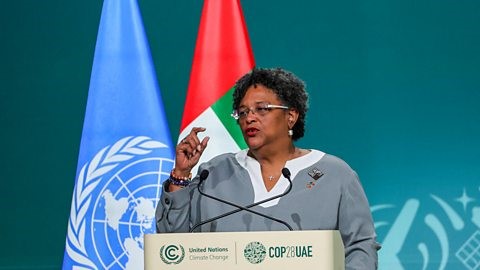





Disclaimer: Copyright infringement not intended.
Context
Details
Rationale
Mandate
Methodology
Analysis on Climate Funding
Closing the climate funding gap
|
PRACTICE QUESTION Q. Consider the following statements: 1.UK, Japan and France launched the Global Expert Review on Debt, Nature and Climate. 2.The review is a follow-through of part of the Paris Pact for People and Planet agreed at the Summit for a New Global Financing Pact in Paris. 3.Global Expert Review on Debt, Nature and Climate was launched at the 28th Conference of Parties to the United Nations Framework Convention on Climate Change. Which of the above statements is/are incorrect? A) 1 only B) 2 and 3 only C) 3 only D) All Answer: A) 1 only |











© 2025 iasgyan. All right reserved